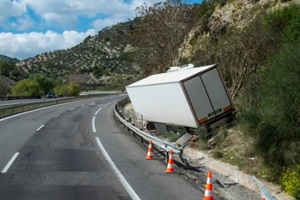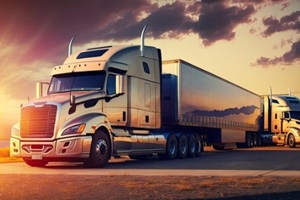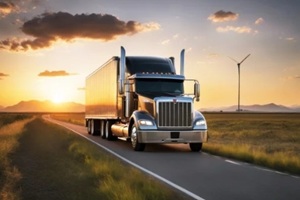
Those who own or operate commercial trucking businesses must understand how liability coverage works in their industry. Choosing the right insurance policy helps businesses protect their assets against damage, theft, and accidents involving their drivers.
Versatile coverage also mitigates the risks of liabilities when running a commercial trucking business, especially as you scale your operations to new regions and goals. In this blog, we explain the ins and outs of liability coverage in commercial trucking to help business owners customize their policies for their operational needs.
If you’re looking for commercial trucking insurance for Illinois businesses, this guide is a starting point for choosing a policy that matches your business structure.
Types of Insurance Policies for Commercial Trucking Businesses
Commercial trucking businesses can purchase multiple types of policies depending on their cargo, operational needs, truck size, and driver histories. The FMCSA requires trucking businesses to have primary insurance coverage before issuing an operational permit.
Regulatory requirements are even stricter for businesses that frequently transport hazardous materials, human passengers, or expensive goods. Here are the most important types of coverage to understand for commercial trucking operations:
- Liability Insurance: General liability coverage, or primary insurance coverage, is required by law in each state. This insurance protects drivers from liability for damages and injuries in crashes involving a company vehicle.
- Cargo Insurance: Commercial trucking businesses need cargo insurance to cover theft, vandalism, and other damages involving their valuable cargo. Special cargo insurance can be obtained for hazardous chemical transport, which covers cleanup and pollution damage in the event of a spill.
- Damage Insurance: Insurance for physical damage covers vehicles for theft, vandalism, and environmental events unrelated to cargo damage. Damage insurance can also help you repair or replace badly damaged vehicles.
What is Liability Coverage?
Liability coverage protects businesses from liability when one of their vehicles is involved in a crash that causes damage, including bodily harm. For commercial trucking businesses, the amount of liability coverage they need depends on their operations.

For example, trucks weighing over 10,000 pounds require a higher liability policy limit, usually at or above $750,000. This limit increases for trucks carrying hazardous materials since accidents involving these vehicles can require expensive pollution cleanup.
Transports that carry explosive, gaseous, poisonous, or radioactive cargo may require over $1 million in liability coverage.
How to Choose Liability Coverage
Choosing adequate liability coverage requires comparing the cost of potential liability claims and the risk of other financial losses against the cost of coverage beyond what is required by law. Businesses with operating agreements must already have primary liability coverage.
However, many should consider additional general liability coverage to protect their drivers and cargo, especially for on-site accidents and non-driving-related accidents. Insufficient liability coverage leaves businesses vulnerable to legal claims, costly damages, and operational downtime that further drains their resources.
The following steps can help commercial trucking businesses understand liability coverage in Ilinois and find the most suitable policy to mitigate the financial risks of accidents and incentivize their drivers’ safety:
- Assess the Business’s Liability: To buy adequate coverage, business owners must accurately assess their coverage needs. This assessment includes accounting for the liability limits required by law and the additional coverage required in your specific situation according to the size and type of truck you employ, your operating area, the size of your fleet, and the materials your business transports.
- Compare Policy Limits: Different insurers offer varied coverage limits for trucking companies, including different premiums, exclusions, and riders.
- Compare Insurers: In addition to comparing policy limits, business owners should compare the financial reputation and history of the providers. This will determine their ability to pay your claims in the event of an accident.
- Hire Experienced Agents: Experienced agents can compare local insurance options and make sure your business has adequate coverage for its operational needs. Professional guidance is not required, but in a complex market with changing regulatory requirements, outside sources can help your business choose the right policy and maintain your coverage limits yearly as your business expands and changes.
Get Comprehensive Coverage with Pro Insurance Group

Liability coverage is a necessary concern for commercial trucking businesses in Illinois. At Pro Insurance Group, our team leverages years of expertise in trucking insurance to customize policies that cover all eventualities for our clients.
Instead of spending valuable administrative resources comparing and shopping for policies with adequate liability coverage, our experienced team can match the policy to your operational needs and goals as you expand your operations.
Contact us and schedule a consultation to learn how our experts can help you create a policy that meets your needs and regularly review your policy to make sure your trucks and drivers remain covered in the event of an accident.
